Well, the birds have been carved, and a lucky few Thanks-givers got their wish on the big end of the wishbone. But we’re still loaded down with leftovers from animation’s bountiful feast of depictions of the hardy settlers who gave us something to be thankful for – so its time to trot out the latecomers to the party. Waste not, want not.
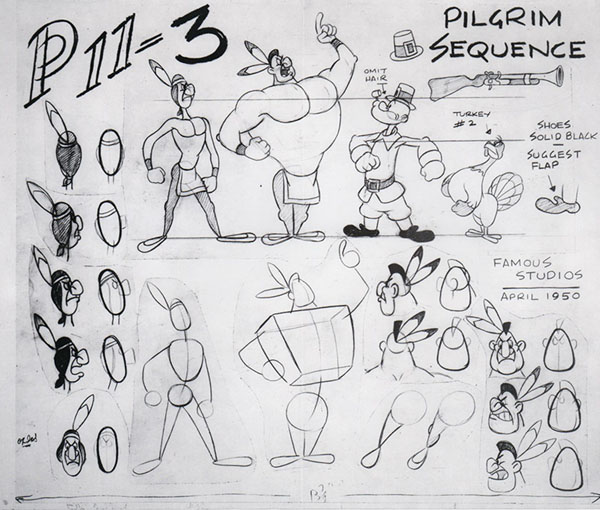
Pilgrim Popeye (Paramount/Famous, 7/13/51 – I. Sparber, dir.) is somewhat disappointing. A late entry in the series, it deals with Popeye contriving a story to keep his nephews from beheading a pet turkey for Thanksgiving dinner. The storyline, told in flashback to when Popeye “was a pilgrim”, involves a rather routine turkey hunt – sort of “Bugs and Elner” type gags, going through the motions more than showing any inspiration. Finally cornered, the turkey reveals there’s no meat under his feathers. Popeye offers him a can of spinach to build him up, but is interrupted by an arrow hitting his hat. The usual Indians, without provocation, capture Popeye and attempt to burn him at the stake. Remembering the can of spinach, the turkey opens it with his beak like a can opener, downs it, and is transformed into a double for an American eagle. Also developing the flying speed of a falcon, he attacks the tribe, rescues Popeye, and knocks the Indians into formation as a totem pole. Popeye concludes that they can’t kill the turkey, as it saved his life. Looking around, he discovers he is speaking to no one, as the yard is empty and everyone’s inside. One of the nephews rings a dinner bell, and calls “Come and get it!” Fearing the worst. Popeye rushes inside, where the nephews tell him, “You’re just in time to serve the turkey……his spinach!” The film should end there, but in a strange moment of overkill, the writers have the bird reply at seeing his meal, “What, no turkey?” I knew these birds had pecking orders – but never suspected they were cannibalistic.
Hysterical History (Paramount/Famous, Kartune, 1/23/53 – I. Sparber, dir.) is another spot-gag reel framing a bouncing-ball sing along of “I’m a Yankee Doodle Dandy”. A pilgrim gag again revisits the courtship of Miles Standish. John Alden pops the question, Priscilla asks him to speak for himself – but Alden confesses, “I like her!”, producing an autographed photo of Dorothy Lamour.
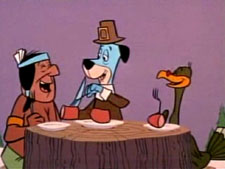 Grim Pilgrim (Hanna-Barbera, 9/21/58) casts Huckleberry Hound as Alden Huckleberry – a really grim Pilgrim in search of wild turkey. The narrator claims Pilgrims have a built-in radar for locating such birds – Huckleberry even emits beeping sounds like same as he scouts the terrain. It gets him close, but his aim is a little off, as he walks right past the bird without noticing him. Huck gives some turkey calls, while the bird mimics him from directly behind. Finally wising up, Huck points his blunderbuss at the bird. “Any last requests?” asks Huck. The Turkey shakes his head no. “Cigarette? Blindfold?” The turnkey still declines. “Aw c’mon! I can’t shoot you with those big brown eyes starin’ on me.” Huck demonstrates how easy it is to put the blindfold on himself – so the turkey just grabs his gun, and blasts him. “You know what”, says Huck in aside to the audience, “The only good turkey is a stuffed one!” The pursuit continues, but the turkey stops when he finds turkey calls being heard both ahead and behind him. An Indian ahead cries out with gobbles from behind a log, while Huck calls from the other direction behind a tree. The turkey won’t play man-in-the-middle, and darts behind a rock. Huck takes aim – and shoots off the Indian’s headdress feathers.
Grim Pilgrim (Hanna-Barbera, 9/21/58) casts Huckleberry Hound as Alden Huckleberry – a really grim Pilgrim in search of wild turkey. The narrator claims Pilgrims have a built-in radar for locating such birds – Huckleberry even emits beeping sounds like same as he scouts the terrain. It gets him close, but his aim is a little off, as he walks right past the bird without noticing him. Huck gives some turkey calls, while the bird mimics him from directly behind. Finally wising up, Huck points his blunderbuss at the bird. “Any last requests?” asks Huck. The Turkey shakes his head no. “Cigarette? Blindfold?” The turnkey still declines. “Aw c’mon! I can’t shoot you with those big brown eyes starin’ on me.” Huck demonstrates how easy it is to put the blindfold on himself – so the turkey just grabs his gun, and blasts him. “You know what”, says Huck in aside to the audience, “The only good turkey is a stuffed one!” The pursuit continues, but the turkey stops when he finds turkey calls being heard both ahead and behind him. An Indian ahead cries out with gobbles from behind a log, while Huck calls from the other direction behind a tree. The turkey won’t play man-in-the-middle, and darts behind a rock. Huck takes aim – and shoots off the Indian’s headdress feathers.
With no regard for political correctness, Huck says “Oh Oh. I Injured a Injun.” The brave charges him, with tomahawk drawn. In a well-timed scene (mirroring a prolonged gun-loading scene used by Sylvester at Warner Brothers in an encounter with Hippity Hopper), Huck goes through all the stages of reloading his blunderbuss with powder, wadding, and musket-ball, while the Indian draws closer and closer. He fires just as the Indian reaches the scene – but nothing appears to happen but a harmless powder blast. Finally, the heavy musket ball merely rolls out the barrel – and falls onto the Indian’s foot, sending him whooping in pain. The turkey reappears, and scoots up a tree. Huck loads one dozen musket balls into his gun, and fires straight up. The heavy balls barely reach the height of the turkey’s tree limb, stop, and start to fall. Meanwhile, the Indian catches up to Huck with a bow and arrow. “Me gottum you”, he declares. “Uh uh, Chief, You gonna gottum”, answers Huck, as the musket balls bombard the chief from above. The chief takes a swipe at Huck with an axe, instead knocking a chunk out of the tree trunk. The tree falls, with the turkey along for the descent. Huck and the chief grab the turkey’s neck like it was a baseball bat, but Huck suggests they settle their differences over a dinner table. Fortunately for the turkey, Huck is willing to settle disputes with him, too, as they all “talk turkey” at a dinner of a large sausage between them, the turkey, chief, and Huck exchanging gobble-talk as the scene fades out.
Pilgrim’s Regress (Rembrandt Films/King Features, Krazy Kat, 1963 – Gene Deitch, dir.). Officer Pup reads a book titled “Life In Colonial Days”, and admires how they handled criminals in such times (stocks, etc.). He daydreams of himself in the Miles Standish role, with Krazy doubling as the fair pilgrim maiden, and Ignatz Mouse recruited in place of John Alden to deliver to Krazy Pup’s message of love. Of course Krazy, having eyes for only Ignatz, insists, “Why don’t you squeak for yourself?” Ignatz tries to avoid Krazy’s love attack, running over the top of a spinning wheel – which turns out to be marked like a Wheel of Fortune, and comes up on the mark “25 kisses“. “I hit the jackpot”, shouts Krazy. The only way to cool Krazy off, thinks Ignatz, is load a musket with a fireplace brick. But Officer Pup chooses this untimely moment to enter, and as Ignatz turns, the musket goes off, konking Officer Pup instead. Ignatz is arrested, and tied to a dunking stool for public humiliation. Krazy determines to save him, and brings in an elephant to drink the lake dry. But the dry lake bed is even worse, as the bottom of the lake is polluted with “jagged junk”. Krazy has to grab both ends of the cut rope hooked to the dunking stool arm to save Ignatz’s life. Meanwhile, the elephant gives Pup a good dousing – which awakens Pup from his dream. But is he awake? He still sees Krazy and Ignatz dressed as Pilgrims, and even Colin Kelley dressed as an Indian. Pup runs off in a nervous fit, believing he has to warn the settlers. Krazy and Ignatz shrug off Pup’s strange behavior – and proceed to the Kokonino Costume Party before all the grub is gone, with Krazy reflecting (in paraphrase to 30’s newsreel personality Lew Lehr), “Policemen is the kraziest people!”
Just to get confusing, the same title, Pilgrim’s Regress (1966), is used again only a short time later, for a Hanna-Barbera Peter Potamus cartoon. Via his magical time balloon, a random spin of the controls to avoid attack on the balloon by a goose flock sends Peter and his monkey sidekick So-So to Plymouth Rock – which they land on too hard, converting it to Plymouth pebbles. A stray arrow shot catches Peter’s pith helmet, making them seriously doubt if Pilgrims are friendly. But it was a mis-aim by Miles Standoffish, who is trying to end it all for his lack of nerve to propose to Priscilla.
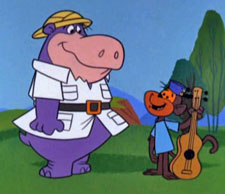 Peter volunteers to act as go-between. His efforts to attract Priscilla’s attention get him accidentally whacked by both top and bottom halves of Dutch doors. Priscilla for once doesn’t ask the likes of Peter to speak for himself (Who could swoon over that face?). Instead, she insists on proof that Miles can be a good provider. Miles is no hunter, and his arrow and gun shots traditionally ricochet, catching more of Peter’s rear end than of any big game. One shot finally makes contact – but instead of a turkey, what he thinks are its feathers turn out to be long ears on a moose. The moose charges, and Miles braces to be trampled. “Stand aside”, boasts Peter, who swears they’ll not be trampled “while I have a breath left”. Inhaling for his secret weapon, Peter lets loose with his “patent pending” Hippo Hurricane Holler. The blast from our “windbag” hero not only picks up the moose, but smashes him into a deer, a bear, a turkey, and a goose – who all go sailing helplessly into Priscilla’s living room.
Peter volunteers to act as go-between. His efforts to attract Priscilla’s attention get him accidentally whacked by both top and bottom halves of Dutch doors. Priscilla for once doesn’t ask the likes of Peter to speak for himself (Who could swoon over that face?). Instead, she insists on proof that Miles can be a good provider. Miles is no hunter, and his arrow and gun shots traditionally ricochet, catching more of Peter’s rear end than of any big game. One shot finally makes contact – but instead of a turkey, what he thinks are its feathers turn out to be long ears on a moose. The moose charges, and Miles braces to be trampled. “Stand aside”, boasts Peter, who swears they’ll not be trampled “while I have a breath left”. Inhaling for his secret weapon, Peter lets loose with his “patent pending” Hippo Hurricane Holler. The blast from our “windbag” hero not only picks up the moose, but smashes him into a deer, a bear, a turkey, and a goose – who all go sailing helplessly into Priscilla’s living room.
Meat on the table. Convinced of Miles’ provider abilities, a wedding occurs. But it’s not long before Miles gets a true picture of married life, as Priscilla turns out to be an incessant nag, saddling Miles with washday chores and breaking dishes over his head to boot. Sailing overhead in the balloon, Peter and So-So wind up dodging musket bullets from the unhappy groom, while he continues to dodge a stack of Priscilla’s plates, for the fade out.
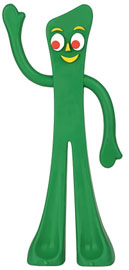 Pokey’s Price (Gumby, 11/2/66 – Art Clokey, dir), takes an odd look at life in Plymouth. Gumby and Pokey are at play in their usual toyland, and contemplating a lunch of a turkey sandwich Gunby has brought – when a young Pilgrim slips from behind a toy car and steals the sandwich. He runs into a book titled “Pilgrims of Plymouth” and disappears into its cover. Gumby and Pokey give chase, with Gumby acquiring a Pilgrim outfit upon entering the book. They catch the robber, and the sandwich is spilled. The young boy apologizes that he was only doing it because the settlers in Plymouth are starving. Gumby determines to help him find food. Pokey meanwhile notices his hind legs sinking into some newly-disturbed ground, and Gumby discovers two large baskets of corn buried in the Earth, presumably by Indians. With no Indians around, the boy takes the baskets to Plymouth, where the Pilgrim leaders declare they will save the town from starvation. (Two baskets for a whole settlement? I guess they don’t eat much.) Gumby continues to look for more possible baskets. But as Pokey sips water from a nearby stream, his eyes pop at the reflection of an Indian on the opposite bank. Gumby and the group attempt a tactical retreat, but other Indians appear on all sides, and a thrown tomahawk and two arrows stop Gumby in his tracks. Gumby stops running and hears the Indians out. They claim the corn, which was intended for planting for the next harvest, was stolen from them.
Pokey’s Price (Gumby, 11/2/66 – Art Clokey, dir), takes an odd look at life in Plymouth. Gumby and Pokey are at play in their usual toyland, and contemplating a lunch of a turkey sandwich Gunby has brought – when a young Pilgrim slips from behind a toy car and steals the sandwich. He runs into a book titled “Pilgrims of Plymouth” and disappears into its cover. Gumby and Pokey give chase, with Gumby acquiring a Pilgrim outfit upon entering the book. They catch the robber, and the sandwich is spilled. The young boy apologizes that he was only doing it because the settlers in Plymouth are starving. Gumby determines to help him find food. Pokey meanwhile notices his hind legs sinking into some newly-disturbed ground, and Gumby discovers two large baskets of corn buried in the Earth, presumably by Indians. With no Indians around, the boy takes the baskets to Plymouth, where the Pilgrim leaders declare they will save the town from starvation. (Two baskets for a whole settlement? I guess they don’t eat much.) Gumby continues to look for more possible baskets. But as Pokey sips water from a nearby stream, his eyes pop at the reflection of an Indian on the opposite bank. Gumby and the group attempt a tactical retreat, but other Indians appear on all sides, and a thrown tomahawk and two arrows stop Gumby in his tracks. Gumby stops running and hears the Indians out. They claim the corn, which was intended for planting for the next harvest, was stolen from them.
Gumby explains the Pilgrims were starving, but the Indians’ leader reminds him, “Indians can starve, too.” The Indians insist on payment – and take Pokey as their price. Pokey is upset, claiming he’s worth a lot more that two baskets of corn – but as he’s dragged away by a rope, relents, “Or maybe not.” Gumby and the young Pilgrim report the incident to Miles Standish, who arms them with muskets and leads a small party back into the woods. They arrive at the Indians’ campground. Pokey is being fed some unknown plant dish – and morphs into 6 different colors. In a sterotypical line, he comments. “Ugh! – – Now I know why Indians say that.” Standish and his party fire a few warning shots over the Indians’ heads to let them know he means business, but he declares peaceful intentions to offer a trade. He offers three hunting knives and some glass beads to the Indians in return for Pokey, and a deal is made. The scene changes to the first Thanksgiving, with Gumby and Pokey as guests of honor. Pokey remarks that he feels sorry for the Indians at getting a bad deal, as he’s sure he was worth more than the measly knives and beads. Gumby responds that the Indians didn’t think so. Pokey reconsiders, then says, “I take it back. I’m not sorry for them. Now I’m just sore.”
Pilgrims On the Rocks (11/1/66), a companion Gumby episode released the preceding day, is considerably straighter and more purely educational. This time, Gumby discovers a Pilgrim captain who’s been washed out of his book by a giant wave. They return to the book, “Mayflower Voyage”, but choose the wrong chapter, winding up in the middle of the ocean.
Finding the right chapter, they rock and roll inside the below-decks of the pitching Mayflower. Pokey wonders why anyone would want to sail on this tub, and the Pilgrim takes them on a side excursion to a previous chapter to meet King James and witness persecution of their beliefs.
After being jailed for an outburst from Gumby, they merely travel through the wall back to the Mayflower chapter. Pokey again miscalculates the pitching deck, and smashes into a barrel of apples, one coming to rest on his head. “All I need is for William Tell and his arrows to come along”, remarks the horse. Eventually, Gumby saves the ship by repairing a sagging timber, and the Pilgrims fulfill history by reaching their destination.
Simon Says, No Thanksgiving (1966), a four part “Underdog” serial, stars Simon Bar Sinister with an unusual plan. He has amassed a small army of 3 planes, 3 tanks, and 12 infantry men – but are these enough to take over the city? Maybe – with the added help of two buttons positioned at the city center – one to activate the air raid sirens to make the attack seem bigger, and a second button to lock the populace in the air raid shelters. All is timed like clockwork for the following day – except that Simon hasn’t watched the calendar. The next day is Thanksgiving, and the street is blocked for a parade so that he can’t reach his buttons across the street. Of course, Simon has a back-up plan – use a “Time Bomb” to blast himself and his henchman Cad to 1621, and stop Thanksgiving – and consequently the parade as well. Sweet Polly Purebread, eaves-dropping outside a window, overhears the time plan and alerts Underdog, with both of them borrowing another Time Bomb and following Simon to the past. Simon convinces the local Indians that the Pilgrims are attacking them by having Cad fire weapons from behind the trees. The Indians charge the Pilgrim fort. Underdog, who has befriended the Pilgrims, stoops to doing something destructive to save the situation – using his heat vision to start a small brush fire. Indian and Pilgrim alike abandon their battle to fight together to stop the brush fire. Underdog repairs the damage from the battle, and everyone makes friends again. Simon, who has returned to the present, has the vanished parade reappear right under his nose. His army is captured, and he is a laughing stock. Underdog and Polly return to receive the cheers of the crowd, and the holiday is saved.
The Mouse on the Mayflower (Rankin-Bass,11/23/68) is an overly long and nearly humorless retelling of the Mayflower voyage and the Pilgrims’ first year, with the title character seeming to be included largely for ornamental purposes only rather than serving as a solid story center, just to give the project some appeal to the kiddies. It features a notable voice cast (Tennessee Ernie Ford, Eddie Albert, John Gary, Joannie Sommers, Paul Frees, and June Foray), and the usual (but hitless) Romeo Muller/Maury Laws musical score – but everyone’s best efforts and intents fail to maintain much of an entertainment level, nor raise it to the level of “inspirational” to pass for the genuine heart or emotion of Disney fare. A contrived subplot about two corrupt members of the crew after the Pilgrims’ gold for the passage, and an allegiance with a renegade Indian and a grizzly bear, doesn’t help the situation. I found myself wanting to tune out at about the ten minute mark.
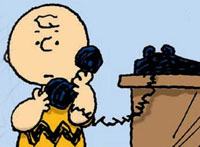 Believe it or not, the Peanuts gang seems to do it better – mainly because it’s shorter – in The Mayflower Voyagers (10/21/88), from the miniseries, This Is America, Charlie Brown, another pretty straight but fairly detailed retelling of the Pilgrim voyage, culminating in the first Thanksgiving. Almost strictly educational, except for a handful of moments such as Lucy insisting that the Mayflower must reach its destination – so that she can put a complaint in the complaint box at how awful the voyage was. Or the gang playing a primitive version of “Linus and Lucy” at the first Thanksgiving, while Squanto tells Charlie Brown that he still can’t understand some of their customs. It seemed an uneasy mix for Charles Schulz’s crew to be playing things so straight, and Lee Mendelson this time shares writing credit with Schulz on the screenplay – suggesting that Mendelson was probably the real brains behind the project, with Schulz just accepting some fast screen credit and cash for a minimum of input to a project that was not quite in his style.
Believe it or not, the Peanuts gang seems to do it better – mainly because it’s shorter – in The Mayflower Voyagers (10/21/88), from the miniseries, This Is America, Charlie Brown, another pretty straight but fairly detailed retelling of the Pilgrim voyage, culminating in the first Thanksgiving. Almost strictly educational, except for a handful of moments such as Lucy insisting that the Mayflower must reach its destination – so that she can put a complaint in the complaint box at how awful the voyage was. Or the gang playing a primitive version of “Linus and Lucy” at the first Thanksgiving, while Squanto tells Charlie Brown that he still can’t understand some of their customs. It seemed an uneasy mix for Charles Schulz’s crew to be playing things so straight, and Lee Mendelson this time shares writing credit with Schulz on the screenplay – suggesting that Mendelson was probably the real brains behind the project, with Schulz just accepting some fast screen credit and cash for a minimum of input to a project that was not quite in his style.
It should also be mentioned that the earlier A Charlie Brown Thanksgiving (11/20/73) features an obligatory short sequence of Snoopy and Woodstock dressing up as Pilgrims – but it is totally extraneously to the meager plot, and does nothing to send any messages or reap any laughs about the Pilgrims themselves – just a quick filler for comedy relief.
Pilgrim Panther (1993), from the made-for TV Pink Panther episodes where he spoke full dialog scripts voiced by Matt Frewer (remember Max Headroom?). While the drawings weren’t bad, the plots were labored and the voicing didn’t build anything memorable into the panther’s personality. In an overly long and soft-on-gags episode, Pink plays chef for the Pilgrims’ banquet. While he is adept at carving potatoes (including whittling a large one into a pre-construction model of the Statue of Liberty, and asiding to the audience that he’ll never get the credit), his entire plans for the banquet include courses of spuds, spuds, and more spuds. A head Pilgrim (Big Nose) demands he come up with something better, or face unspecified “dire consequences”. Pink goes into the woods hunting for turkey. Meanwhile, a huge Indian brave named “Two-Feather” (because that’s all his headdress contains) can’t make time with Hunto- Pocus because she only like braves with huge headdresses, and decides it’s time to upgrade his topper. Of course, a wise-cracking turkey plays man-in-the-middle to these two rivals’ efforts to obtain either his giblets or his feathers.
The original Freleng writers might have gotten some mileage out of this situation, but most gags sort of fizzle out for the new crew. One works to a degree. Pink unboxes a store-bought turkey call. Two-Feather pulls a fast switch and replaces it with a buffalo call. Pink blows it – and is trampled by a stampede of buffalo which leave their tracks imbedded in him. Two-Feather laughs uproariously, then blows the real turkey call – only to be trampled in the same manner by a herd of turkeys! The ending is a triple borrow – first, the Indian and Pink vie for rights to the turkey in the same manner of high-hand-on-a-baseball-bat grabbing of the turkey’s neck used in Huckleberry Hound’s “Grim Pilgrim”. Pink discovers the turkey has been eating a strange food – a hot dog, purchased from a nearby stand run by Hiawatha which provides catering (an angle similar to the ending of Woody Woodpecker’s “Fair Weather Fiends” (1946). And Two-Feather is guest at the Thanksgiving hot-dog banquet, impressing Hunto-Pocus by wearing the turkey live atop his head (the same gag from Tex Avery’s, “Johnny Smith and Poker-Huntas”, discussed in part 1 of this article last week. With all this recycling, no wonder the film has a tired feel.
Turkey Jerky (9/16/98), from Stephen Spielberg’s “Animaniacs”, is a rollicking action-packed romp, as Yakko, Wakko, and Dot face off against Miles Standish is search of the first Thanksgiving turkey – who happens to be the Warners’ pet. (Elmer Fudd appears in a cameo, as a wabbit hunter going in the opposite direction, but receives no respect from Miles and is tossed away into a bush.) Notably, the Warners play the whole episode in traditional Indian attire. Standish asks, “Ye do not look like native Americans”. Wakko replies, “Confidentially, we’re adopted.” Dot pleads for the turkey’s life, while a message fades in below, reading “Academy members vote now.” Yakko presents Dot with an award, while Dot asides to the audience, “It pays to overact.” A lifted dialog gag appears dating back to Bob Clampett’s “A Tale of Two Kitties” (1942), with Standish demanding “Give me the bird!” Yakko replies, “Confidentially, we’d love to, but the Fox censors won’t let us.” For no apparent reason, Wakko eats Standish’s musket for lunch – then starts shooting musket balls from his mouth. A Tex Avery-style gag has a frustrated Standish demand the Warners’ leave and let him be. “You’ll be lonely”, they insist, but ultimately oblige him – by picking up and carting away all objects of scenery, and even the background, leaving Standish on a blank screen. Standish goes berserk, and eventually is served on the Pilgrim banquet table as the biggest turkey of them all.
Turkey Catchers (1999), produced for ABC’s “Mickey Mouse Works” and later worked into the “House of Mouse” episode, “House of Turkey”, presents a fast-moving barrage of sight gags as Mickey, Donals, and Goofy’s latest odd job is hiring themselves out to catch a turkey for an old-time pilgrim’s Thanksgiving. Mickey employs Pluto as hunting dog, but its hard to tell who’s dog and who’s master as they keep interchanging roles in their stalking technique – only to get run in citcles by the turkey and hogtied in Pluto’s leash. Donald tries an Ajax Cranberry Cannon, instructions for which should read “Reassemble frequently” the way Donald uses it. Goofy can’t even find the turkey – even though the turkey manages to make off with his wardrobe while behind a bush. The trio even resort to female impersonation (borrowing a leaf from “Moose Hunters” (1937) ), with Donald elected as the lure because he’s “practicallya turkey already” – and besides (as Mickey points out), no one would be attracted to Goofy in a turkey suit! The ruse almost works – until the costume catches on a tree limb, and Donald is revealed. The turkey seeks revenge for being fooled, donning a pilgrim hat and arming himself with a blunderbuss. The hunters become the hunted – but things finally work out with the turkey being guest of honor at a Thanksgiving (ham) dinner.
The new wraparound footage for the House of Turkey (2002) enlargement has Mickey and most of his staff in pilgrim garb for Thanksgiving, and the turkey also invited as a performing guest at Mickey’s Toontown nightclub. But the clientele (including Big Bad Wolf, Gaston, Peter (of Peter and the Wolf), and the hyenas form The Lion King), and the club’s chef (Gus Goose) all have other ideas of a culinary nature for the “honored” guest, and give him a good run for his giblets throughout the episode. Deprived of their intended dinner by Mickey, predator characters start seeking other prey among the audience, and the only way Mickey can restore the peace is to don a turkey suit and let the crowd chase him, while the real turkey, in a Mickey outfit, brings down the curtain.
Then there was Free Birds (Reel FX Creative Studios, 11/1/13), an attempt to bring all these tropes to feature-length, with a far-fetched time-travel tale for the presidential-pardoned turkey and a radical companion who borrow a CIA time machine to try to prevent the first Thanksgiving and save turkeys everywhere. Miles Standish and company again figure into the convoluted plot – which just didn’t deliver the cranberry sauce, and never reached the potential of its trailer. I defer to plot description on Wikipedia, as the film (which I picked up on used DVD and ultimately relegated to the back-corners of my video shelves, unlikely to be seen again) fell far short of becoming a perennial holiday classic, and has not maintained an esteemed place in my memory.
I believe we’ve picked the carcass clean. Now we can all rest up from our gluttony – until we do it all over again for Christmas dinner. Oh, my aching tum-tum!


 Charles Gardner is an animation enthusiast who toils by day as a member of LA Law – but by nights and weekends indulges in classic jazz and ragtime as a performer; and studies classic Hollywood cartoons… maybe a little too much.
Charles Gardner is an animation enthusiast who toils by day as a member of LA Law – but by nights and weekends indulges in classic jazz and ragtime as a performer; and studies classic Hollywood cartoons… maybe a little too much.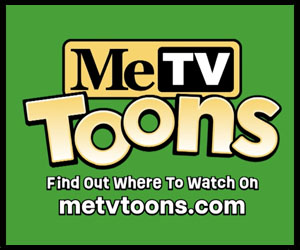










































































































































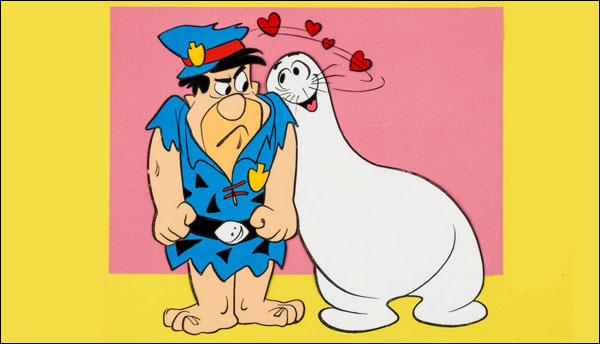
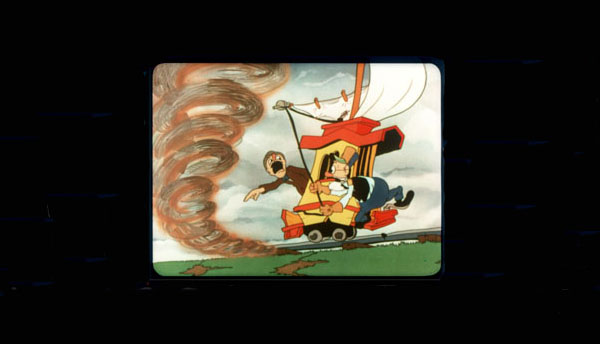






















did you forget The Thanksgiving That Almost Wasn’t by Hanna-Barbera?
The TV special “Uncle Sam Magoo” has a Pilgrim sequence that covers the Standish/Alden/Mullen story, with the running gag that Priscilla’s beauty distracts every man who sees her.
“Thanksgiving in the Land of Oz” makes reference to the Pilgrims in the song “Beans in Your Button.”
There was another animated Thanksgiving special about an Indian boy and a Pilgrim boy becoming friends. Aired some time during the 70’s but I don’t remember the name of it.
I always got a chuckle out of the turkey saying “What, no turkey.”
I guess I have a warped sense of humor.
“Simon Says- No Thanksgiving” was originally presented on NBC as a “special” episode {all four parts were shown} at 12 Noon (et)- right after “Macy’s Thanksgiving Day Parade”- on November 25, 1965.
Hanna-Barbera also produced a Thanksgiving-themed episode of PAC-MAN that was truly cringe-worthy. Not only were the Ghost Monsters cast as the Native American Indians, but at the end of the episode Ms. Pac-Man makes a line referring to them in terms of “We must share our bounty, even with those who are less worthy”
There’s a very brief depiction of pilgrims in the Mighty Mouse cartoon “Prehistoric Perils” (Terrytoons/Fox, Mighty Mouse, 28/12/51 — Connie Rasinski, dir.), in which the vile villain Oil Can Harry abducts the distressed damsel Pearl Pureheart (so what else is new?) and uses his time machine to transport her back to the age of the dinosaurs (oh, that’s what). As the machine spins back through time, a montage of still illustrations shows Harry and Pearl, both dressed in historical garb, in 1890 (gay nineties), 1620 (Plymouth colony) 100 B.C. (Roman republic), and 1600 B.C. (Pharaonic Egypt) before landing in 1,000,000 B.C. — which, as we Raquel Welch fans all know, is the precise moment in Earth’s history when humans, dinosaurs, and Ice Age mammals all coexisted. In 1620 Harry and Pearl are dressed as Pilgrims, the former in an attitude of sexual aggression with which one does not normally associate the Puritan sect. I’ll say Pearl makes a very attractive Pilgrim, but then Pearl’s the kind of girl who looks good in everything.
“The Romance of Plymouth Rock” (Total Television, Tennessee Tuxedo and His Tales, 13/11/65) is a play written and directed by Tennessee Tuxedo, with a cast of animals from the Megapolis Zoo. Chumley the walrus stars as Miles Standish, Tennessee plays John Alden, Baldy (in drag, and not for the first time) plays Priscilla, Yak handles the special effects and has a bit part as a pilgrim, and Jerboa Jump and Tiger Tornado play Indians. A dispute between Tennessee and Jerboa as to whether the Indians were friendly or hostile is settled by a visit to Mr. Whoopee, who tells the gang the story of the first Thanksgiving.